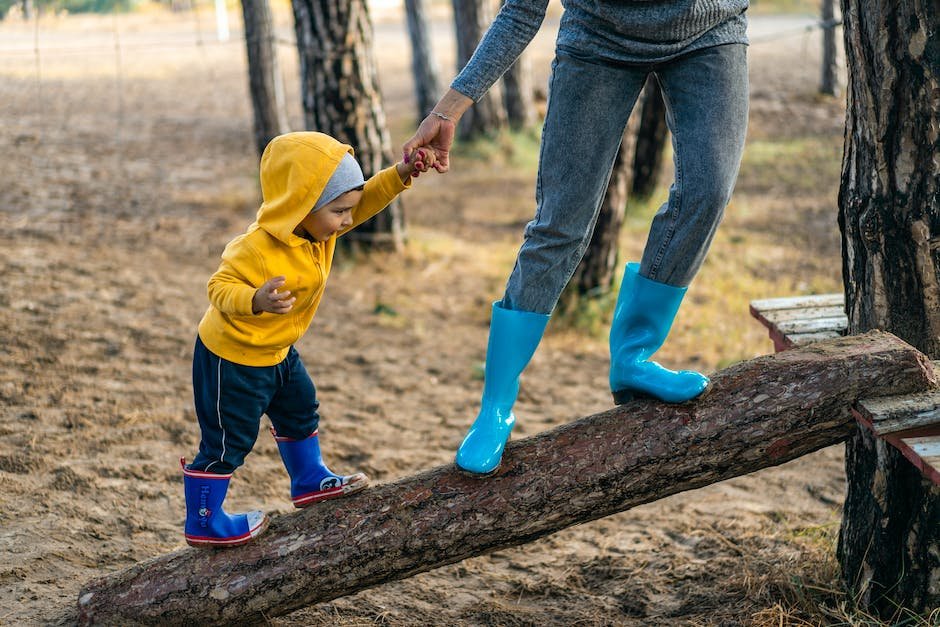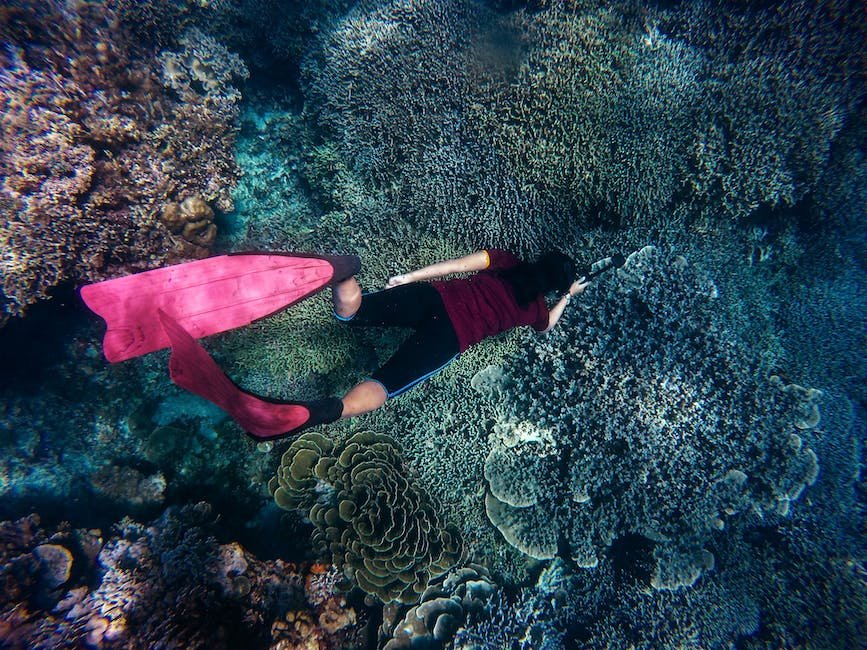If you’re looking for an adventure that will change your life, learning to Scuba Dive is a great option! Scuba diving is an incredibly unique experience that allows you to explore the underwater world in a way that is not possible on land. When you learn to Scuba Dive, you will gain a new perspective on the world and see things that you never knew existed.
In addition to the one-of-a-kind experience of diving, learning to Scuba Dive will also give you a new set of skills that you can use for the rest of your life. Scuba diving is a great way to meet new people and make friends, as well as see some of the most beautiful places on earth. Dive trips can be relatively inexpensive, and once you have your certification, there are no limits to where you can go or what you can see.
So, if you’re looking for an adventure that will change your life, learning to Scuba Dive is a great option!
There are countless reasons why learning to Scuba Dive will change your life – both in good ways and bad. Scuba diving is an amazing way to see the world and explore the underwater world, but it also comes with risks.
With that said, here are four ways learning to Scuba Dive will change your life:
1. You’ll See the World in a New Way
Once you learn to Scuba Dive, you’ll be able to see the world in a whole new way. You’ll be able to explore the underwater world, which is something most people never get to experience.
2. You’ll Gain a New Skill
Learning to Scuba Dive is a skill that you’ll have for the rest of your life. It’s something you can use to travel the world and see new places.
3. You’ll Meet New People
When you learn to Scuba Dive, you’ll meet new people who share your passion for the sport. You’ll make new friends and create lasting memories.
4. You’ll Challenge Yourself
Scuba diving is a physical and mental challenge. It’s not for everyone, but if you’re up for the challenge, you’ll find that it’s an incredibly
Why is it important to learn scuba diving?
Scuba diving is a great way to learn about marine life and appreciate its beauty. By spending time underwater, scuba divers can see first-hand the importance of preserving this delicate ecosystem. Divers can also help to protect marine life by becoming involved in conservation efforts and spreading awareness about the importance of preserving these underwater environments.
If you love the ocean and adventure, scuba diving is the perfect activity for you. Not only will it open up a whole new world of nature and wildlife to you, but it’s a great way to decide future travel destinations129.
What does scuba diving teach you
Diving and yoga are both great ways to learn how to control your breathing and stay calm under pressure. Both activities require you to focus on your breath and maintain a regular breathing pattern. Diving teaches you to be aware of your surroundings and to always be prepared to take a breath, while yoga and meditation help you to relax and clear your mind.
Scuba diving is an amazing way to explore the underwater world. You can move freely and feel like you are part of the marine life. Another great thing is that diving is the closest thing to flying. Hardly having to deal with gravity makes you feel like you’re weightless and flying into the blue.
Is scuba certification good for life?
Your PADI Open Water Diver certification never expires. You can dive with a PADI Dive Center or Resort anywhere in the world – even if it’s been years since you last made a dive.
However, if you haven’t been diving for awhile, we recommend taking the PADI ReActivate course to refresh your dive skills and knowledge. This way, you can start diving again with confidence and dive safely. The PADI ReActivate program is available online or through a PADI Dive Center or Resort.
There is only one scuba diving age restriction- You can begin to dive when you are 8 years old, and there is no maximum age.
Do scuba divers have stronger lungs?
Divers have larger lungs than predicted when they start their diving careers, according to a new study. The research, published in the journal PLOS ONE, indicates that the increased lung size may be due to an adaptation to diving.
The study found that divers have an average forced vital capacity (FVC) of 6.62 liters, which is more than the predicted value of 6.04 liters. The FVC is the amount of air that a person can exhale in one forced breath.
The researchers say that the increased lung size may help divers to withstand the effects of hyperbaric pressure, which can cause the lungs to collapse.
Diving is a physically demanding sport, and the increased lung size may help divers to perform better. The researchers say that further studies are needed to confirm the findings.
Yes, you can get certified as a diver without being a strong swimmer. You will need to know some basic swimming skills (such as the ability to float or tread water for 10 minutes, or swim 200 meters unaided), but you will not need to be a strong swimmer to participate in introductory scuba diving programs.
Is scuba diving hard for beginners
No, it is not hard to learn to dive. The three basic skills are easy to master, and once you have them down you can enjoy the underwater sights.
We think the perfect hobby needs to be fun, teach you new things, take you to new places and keep you fit and healthy!
Is diving a good hobby?
Diving is one of those hobbies that you can never really fully master – there’s always something new to learn or explore. Even experienced divers can find new things to accomplish, whether it’s diving in a new location or learning a new skill.
But what really makes diving so special is the sense of achievement and wanderlust it instills in its participants. Every dive is an adventure, and even the most routine dives can offer up unforgettable experiences. Whether you’re diving in the warm waters of the tropics or the cold waters of the Arctic, there’s always something new to discover.
Diving is a great way to relax, but it also has some great health benefits! By moving around underwater, you raise your heart rate, tone your muscles, and build endurance and strength. Plus, activity under water is also easier on your joints and ligaments – making it a great workout for people of all ages and fitness levels.
Why is diving so relaxing
Slow deep breathing helps alleviate stress tremendously. It also improves blood flow, increases energy levels and is a natural pain killer. So no wonder divers always seem so relaxed. Another one of my favorite aspects of diving is the feeling of weightlessness.
Diving brings you closer to nature in a way that you can’t experience from land. You will see creatures that you might only be able to see on television or the big screen. With diving, you will feel closer to nature and learn to value it more than you did before.
Who should not scuba?
If you can reach an exercise intensity of 13 METS, your heart is strong enough for most any exertion. However, you should not dive if you have any chest pain, lightheadedness, or breathlessness during exertion.
Diving can be a dangerous activity if you are not properly trained and prepared. Decompression sickness, also known as the bends, can occur when you surface too quickly from a dive. This can be fatal if not treated immediately. Arterial air embolism can also occur, which is when an air bubble enters your bloodstream and blocks an artery. This can cause a heart attack or stroke. And of course, you can drown if you are not careful. There are also other risks associated with diving, such as nitrogen narcosis, which can make you feel disoriented and confused. However, if you are properly trained and prepared, these risks are much less likely to occur.
Is scuba diving stressful
Diving stress is a positive and necessary stressor for fit and well-trained divers. It results from breathing modifications, water immersion, and changing pressure as the diver moves vertically in the water. These stressors cause spontaneous adaptations without divers being aware of it.
While scuba diving, it is important to continuously breathe and never hold your breath. If you hold your breath, it can lead to serious health problems.
Wrap Up
Scuba diving is an activity that can be enjoyed by people of all ages and backgrounds. It is a great way to see the underwater world and to get some exercise. Scuba diving can also be a very spiritual experience. Many people who learn to scuba dive say that it has changed their lives. Scuba diving can help you to appreciate the natural world in a whole new way. It can also help you to connect with other people who share your love of the sport. Scuba diving is a great way to meet new friends and to explore new places.
If you’re looking for an amazing experience that will leave you feeling exhilarated and alive, learning to Scuba dive is a great option! Once you venture beneath the waves and see the incredible natural world that exists below the surface, you’ll be changed forever. Scuba diving is not only an exciting sport, but it can also be a very calming and relaxing experience. Whether you’re enjoying the beauty of a coral reef or investigating a shipwreck, learning to Scuba dive will change your life by opening up a whole new underwater world for you to explore.

